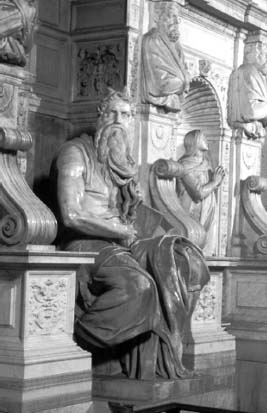JudaismReligious Beliefs |
What do Jews believe about God? |
God is both utterly transcendent and strikingly accessible, both awe-commanding and irresistible. As the ultimate majestic power, the merest hint of divine nearness brings all creation to its knees. This God is the Holy One of Israel, into whose presence only a fool would enter nonchalantly. Any person of sense knows instinctively that to approach God is to be filled with dread. That’s what “holy” means—forbidden, off-limits, wholly other. Dread is not always a bad thing. Here it is clearly an appropriate response. This does not mean that God is cruel or despotic, although some scriptural accounts might seem to convey that impression. Recall the story of the men assigned to carry the Ark of the Covenant to its new abode. When their ox stumbled, one man lunged for the Ark to keep it from slipping from the cart and was instantly struck dead. The point of the story is that “God” means “danger.” And when God claims allegiance, there is no room for the tentative. Abraham was ready to sacrifice his son Isaac. Israel’s kings and military commanders were ordered to commit “total war,” sparing nothing, so jealous was God for complete dedication. At the same time, Jewish images of God convey a divine intimacy and immediacy. God creates all things by the unimaginable power of divine speech. Every divine word is immediately embodied in some undeniable event. God walks with Adam in the cool of the evening and delivers through the prophets a message of absolute tenderness. Most of all, the God of the Hebrew Bible is unfailingly devoted to his people. This God acts in all the events of human history.
Various important names of God appear throughout the Hebrew Bible. Torah uses the word Elohim, a kind of plural form related to the same Semitic root (el) from which the Islamic name for God, Allah, derives. But the word Yahweh is a still more central term. Sometimes translated as “He Who Is,” in connection with God’s identifying himself to Moses through the Burning Bush as “I Am Who I Am” or “I Will Be Who I Will Be” (Ehyeh Asher Ehyeh). Many Jews choose not to pronounce this most sacred name of God. When reading scripture they prefer to substitute the Hebrew Hashem, “the Name,” every time the word Yahweh appears. Similarly, many Jewish publications in English print simply G-d in place of God, out of reverence for the sacred word. Another term, Adonai (“my Lord”) is also significant here. Some people combine the vowels from Adonai with the consonants of Yahweh to get Jehovah. This linguistic compromise allows people to both say and not say the sacred name of God.

A sculpture of Moses by Renaissance artist Michelangelo.
